
Cem Karaca (Muhtar Cem Karaca [pronunciation: Jem Karajá] 05.04.1945 – 08.02.2004) – Turkish musician, lyricist and performer, one of the founders of the Anatolian rock movement and fathers of modern Turkish rock. Known not only as a rocker, but also for his communist political convictions.
Karaca was born in Istanbul to an artistic, bohemian family. His father was Azerbaijani by origins, his mother was Armenian, and she and her family were well versed in music. Since childhood, Cem was immersed in music. True, his father did not approve of his passion for rock and even came to his concerts specifically to boo him. However, this did not break him.
Karaca's voice has amazing power and expressiveness. Unlike the restrained intellectual manner of Barış Manço, Karaca always sang with all his might, with a cool masculine pressure, even aggression. His image is "a rocker without fear and reproach" (the words of one critic). This manner is not typical for Turkey, the vast majority of Turkish bands and vocalists sing softly.

Like many musicians in the early and mid-60s, Karaca started with covers of Western bands, Elvis Presley, etc. However, quite early on he reoriented himself to the Anatolian ideology, to the synthesis of Western and Eastern music. He recalled how, while serving in the army, he once heard the sounds of the Turkish saz instrument, and they seemed native to him. In addition, he, like Manço, was influenced by the poetry of the Ashiks. However, unlike Manço, he often took poems of other poets for his songs, and most often it was Nazım Hikmet. As a rule, he wrote the music himself, with rare exceptions.
Early in his career, he performed with various bands, including Apaşlar (Daredevil Heads) and Kardaşlar (Brothers). The former featured Mehmet Soyarslan, who was either the sole author or only the author of the lyrics (information varies) of the famous song Resimdeki gözyaşları (Tears in the picture), one of Karaca's calling cards. It is still constantly played on Turkish radio.
Karaca came to fame in 1967 with the song Emrah (Emrah). The lyrics are quite frivolous, but strangely enough, it's a poem by the classic Turkish poet Emrah from Erzurum. This is where Karaca finds the style of his best hard rock stuff: dark, strong, gloomy minor. With this song, Karaca became the second prize winner of the then Turkish Golden Microphone competition.
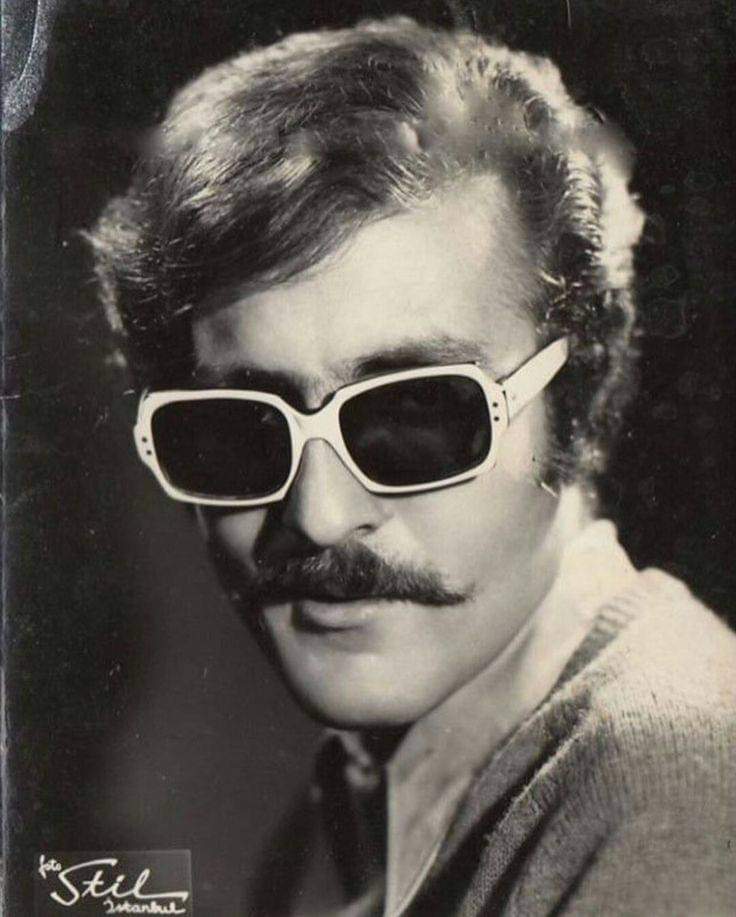
Ayrılık Günümüz (The Day We Part) from 1969 is a very typical Karaca song. It is a real hard rock, again the same powerful dark minor. The same year saw the release of Bu son olsun (Let it be the last time), a cheerful light piece with a touch of gypsy, one of Karaca's best known. And the best song of 1970, in my opinion, is Adsız (Untitled), which he released in Germany with Ferdy Klein's band (İ don't know who he is).
In 1972, Karaca began performing with the band Moğollar (Mongols), with whom he collaborated periodically until his death. The Mongols are a great band in their own right, and they collaborated at different periods with various Anatolian musicians, including Barış Manço. Why they parted ways with Manço rather quickly, but had a very long and frequent relationship with Karaca is a mystery to me. His powerful aggressive vocals would seem to be incompatible with the brooding and soft music of the Mongols (and Manço's lyrics are just very compatible). But the fact remains. The most popular song of Karaca and the Mongols is Namus belası (In the name of honor). It is a kind of Anatolian rock and roll - a combination not of Turkish folk and Pink Floyd, as Manço and the Mongols were doing solo at the time, but Turkish folk and rather simple and empty, in my opinion, energetic rhythmic figures. Karaca has several such things, I personally don't like all of them, but almost all of them were popular. Another similar thing is Gel, gel (Come, come).
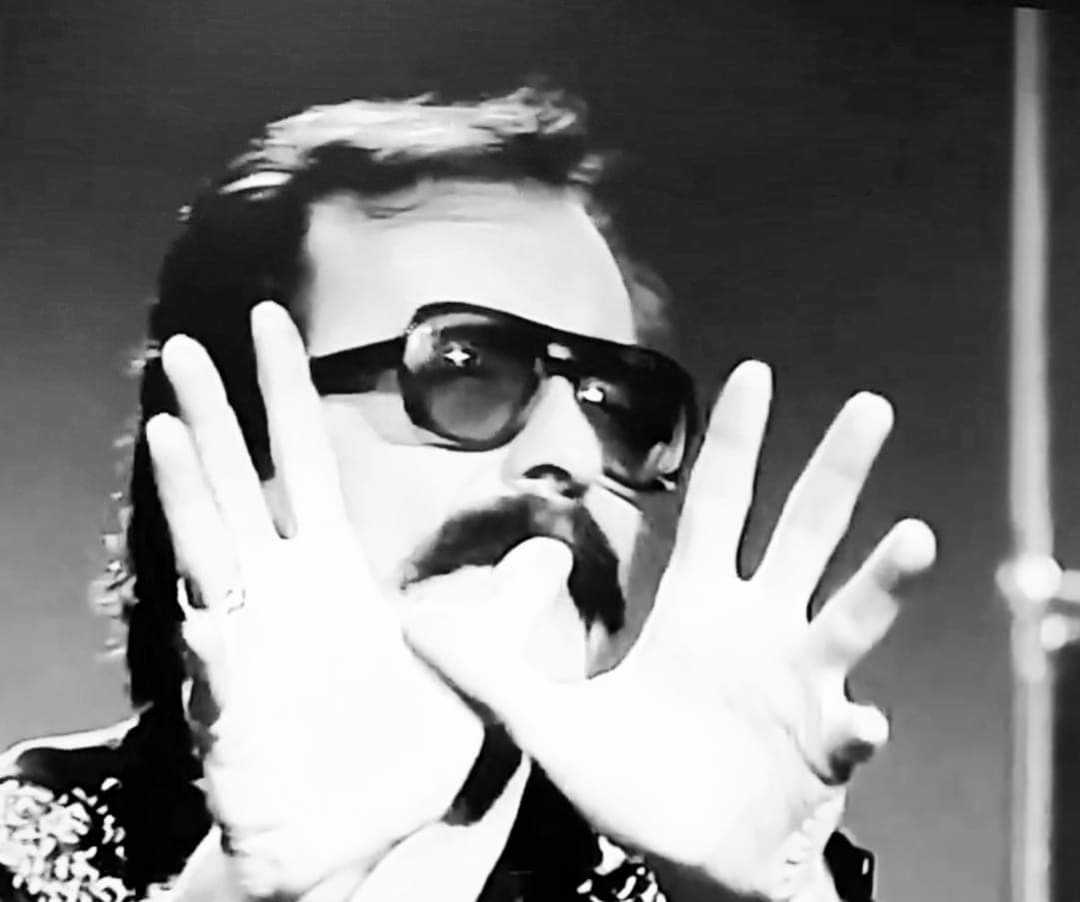
In 1974, the album Cem Karaca'nın Apaşlar, Kardaşlar, Moğollar ve Ferdy Klein'a Teşekkürleriyle (Cem Karaca's gratitude to Apaşlar, Kardaşlar, Mongols and Ferdy Klein) was released. There are a lot of folk songs, the very beginning of Anatolian rock.
From 1974 to 1978, Karaca performed with the group Dervişan (literally: Like Dervishes, Dervish-like). First of all Tamirci Çırağı (The Mechanic's Apprentice), in which Karaca expressed his fully developed political views. These include sympathy for the oppressed, communism, and leftism. By '78 there was serious tension between him and the Dervishes over politics. He was involved in the leftist movement and was getting everyone in trouble. Nevertheless, they released the excellent Beni Siz Delirttiniz in 1975 and 1 Mayıs İşçi Marşı (Workers' May Day Anthem) in 1978. Then he and the Dervishes parted ways.
In 1977, the album Yoksulluk Kader Olamaz (Let Poverty Not Be Fate) was released, naturally politicized, but magnificent in its passion. Its ten-minute improvisation Sevdan beni (Your love for me) plunges you into meditation. Some things from it are quite strange, like Kerem gibi (Like Kerem; Kerem is the hero of oriental lyrical drama, a nominal name). Interestingly, all the songs there have the same intro.
1978 is the release of the concept album Safinaz (Safinaz, a girl's name). The title song of Safinaz is absolutely amazing. It's a long suite - a story about the cruel fate of a janitor's daughter, forced first to work and then... Right to the point of tears

In 1980, Karaca's long forced emigration began. The military came to power in Turkey and Karaca was to be arrested - fortunately, he was in Germany at that moment, where he had to stay for 7 years. The same year saw the release of the previously recorded album Hasret, consisting of songs mostly based on poems by Nazım Hikmet. The title Hasret (Longing, yearning) is strong and poetic, many others are too, although some are slightly similar to each other. Kız çocuğu (Daughter), oddly enough, has slightly French intonations. Also on the album is Alamanya (Germany), the first of a series of his emigrant pieces that form a single heartbreaking cycle. He was very homesick for Turkey.
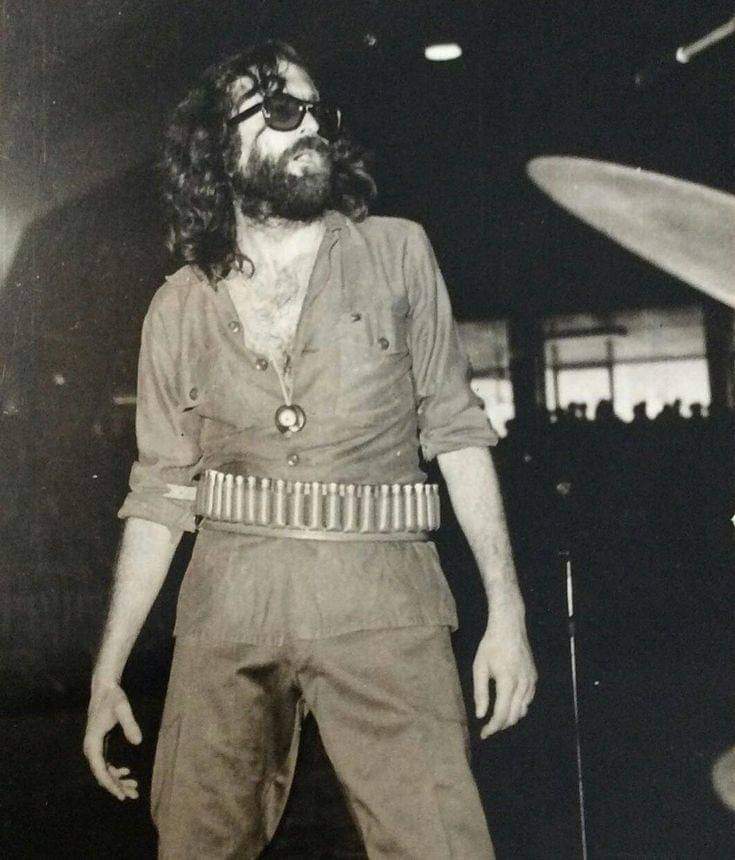
In 1982 the album Bekle beni was released, the title song from which Bekle beni (Wait for me) is written as if on the poems of K. Simonov (of which a quarter remained in translation), not a masterpiece, but it conveys its meaning in the general pitiful longing of the whole album. Among the emigrant songs Alamanya Berbadı (I feel bad in Germany) is expressive. Sakın reddetme (Just don't refuse) is relatively light.
1984 is the year of the release of the great emigrant album Die Kanaken (a German swear word for immigrants), in which Karaca sings almost all the songs in German. His accent is certainly audible. The whole album is about the unhappy fate of strangers in Germany. Some of the songs on this album are terrific, especially Mein Deutscher Freund (My German Friend) and Es kamen Menschen an (İt's People Who Are Coming). The latter was later released by him in Turkish as well. Beim Kaffee (contextual translation: Cup of Coffee) and Ayşe, Meral, Semra maintain the same level of tension. The Turkish Çok yorgunum (I am so tired) on poems by Nazım Hikmet was also released on the same album, although the style suggests he had recorded it in earlier years.
It seems that this album was created by a man who lost hope to return to his beloved homeland, who expects nothing and hopes for nothing. However, things turned out to be better than expected. A high-ranking Turkish politician came to Germany on a visit, Karaca managed to meet him and he promised to help. A trial was held, and in 1987 Karaca was amnestied. Immediately he returned.
Very quickly the material for a new album was collected, and in the same year, 1987, the excellent Merhaba Gençler ve Her Zaman Genç Kalanlar (Hello, young people and those who always remain young), which is usually called Merhaba gençler for short, was released. Two other powerful songs of the emigrant cycle, Almancılar (Germans, Turkish version of Es kamen Menschen an) and Hep kahır (Forever torment), were released on it. Yarım Porsiyon Aydınlık (Half a Portion of Intellectuals, or Half-serving Enlightment) - musically it reminds of other things, but the lyrics are dedicated to denouncing some political hypocrite. It's scary to think who he means. There's also Bidanem (I don't know such word in Turkish, they say it's "my only one") - in Karaca's usual gloomy style, with original musical harmonies. The rest of the pieces are considerably lighter.
I don't like everything on the 1988 album Töre (Mores). Strangely enough, there are several songs on it where Karaca is the author of the words, not the music. Among them is a very beautiful Sevda kuşun kanadında (Love on the wing of a bird), the author of the music, as it is written - Armenian musician Arut Pambukchyan. Akşam Erken İner Mapushaneye (It's early evening in prison) is written to music that Karaca has used before. Hasret with lyrics by Nazım Hikmet has also been released before, this is a slightly reworked version, the same goes for the early hit Resimdeki gözyaşları. The song Dur be yeter (Enough is enough, stop) on the social theme sounds very convincing.
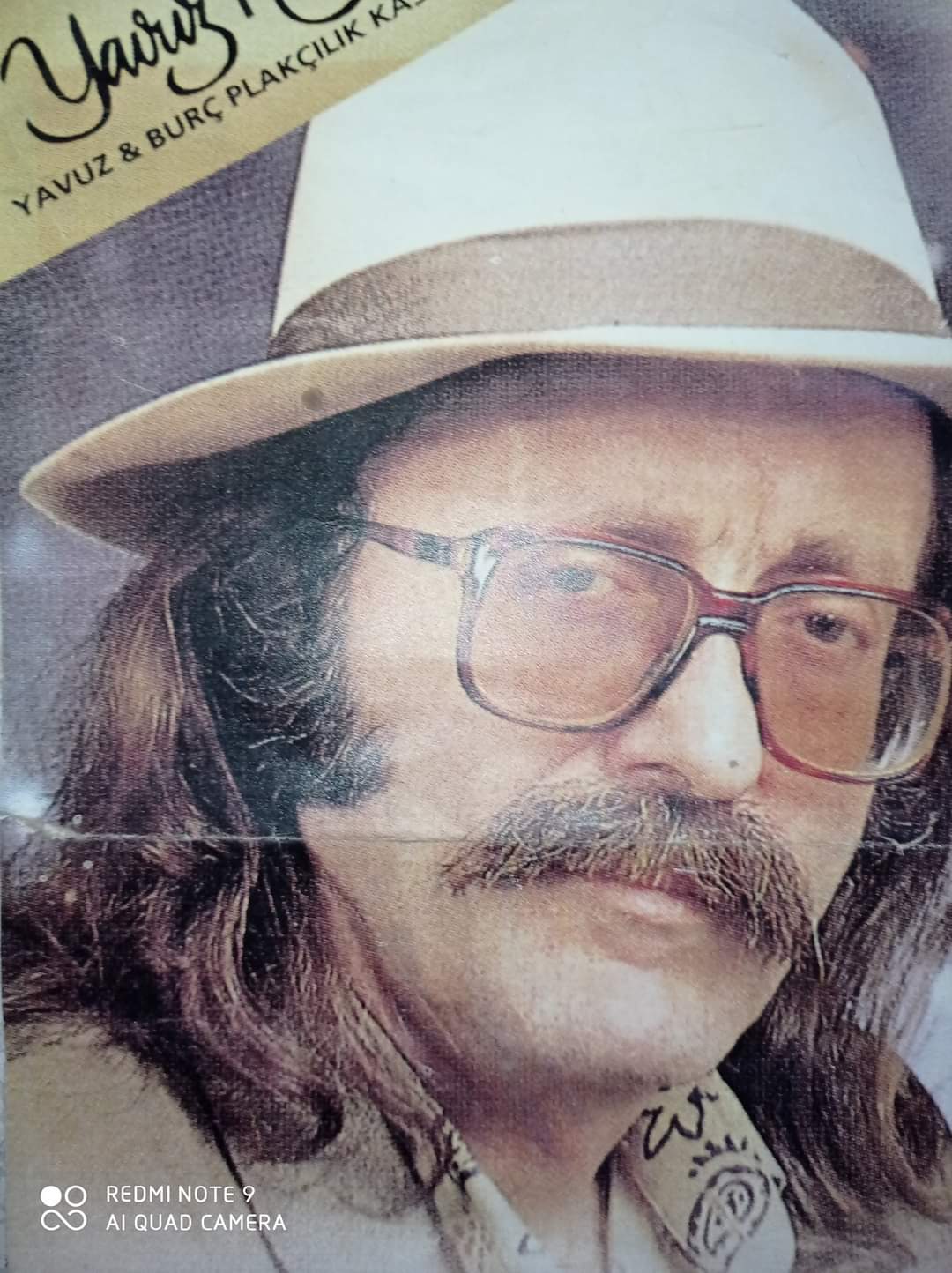
About staying young for a long time, Karaca didn't succeed completely. By the mid-90s, he had visibly aged, especially when he gave up his famous glasses. He was barely 50 and looked considerably older. But the pressure of his vocals never waned. He continued to write songs.
In 1990, the album Yiyin Efendiler (Eat, Gentlemen) was released. There you can hear an Anatolian sound similar to his earlier stuff, such as Kirlenmiş Çığlık (Dirty Scream), although it is said not to be by him. The content is, as before, denunciations of rich, hypocritical politicians. Sen Seni Bil (Know Yourself) is unusual, it does not seem to be Karaca's theme.
In 1992, Karaca's album Nerde Kalmıştık? (Where have we come to?) was released. He recorded it together with Uğur Dikmen and Mongol leader Cahit Berkay, with whom he often performed together at the time. In sound and mood, many of the songs on this album are a throwback to his early work. The powerful hit Islak ıslak (translation: Eyes Full of Tears) was first released on this album, but I suspect he wrote it much earlier. There's a lot of lively fun stuff on there, though not without Karaca's inherent skepticism. Especially Sen duymadın and Raptiye rap rap.

Then there was a long break, and in 1999 Karaca's last album Bindik Bir Alamete... was released. (This is the first part of the Turkish proverb "Bindik bir alamete gidiyoruz kıyamete" - "Blindly moving to an unknown place"). There, strange as it may seem for Karaca, the religious theme began to appear on the background of his quite frequent fast "Anatolian rock'n'rolls". Karaca's son Emrah Karaca took part in the recording of some songs (he still performs). Obur Dünya (Voracious World) finally rises above politics and goes to the level of an existential indictment of the physical world's mortality, of the fact that there is no mercy anywhere (but Karaca made a cover of a song not his own). Ölüm (Death) is a quite energetic invocation of death "with a smile". Allah yar (God is beloved) - almost completely atypical for Karaca Sufi-Dervish poetry.
This was the end of Karaca's journey in Anatolian rock. He still continued to perform, but there were no more albums. The very heartfelt Son şarkı (The Last Song) was indeed one of his last songs.
When Barış Manço died in 1999, he responded with the sorrowful recitative Barış'a şiir (Poem to Barış). The two Anatolian stars were lifelong friends, although they disagreed on philosophical and political issues. However, it should be noted, both came to religion at the end of their lives (though Manço much earlier). Several times in the early 2000s, Karaca performed with the band Kurtalan Express, which had previously accompanied Manço.
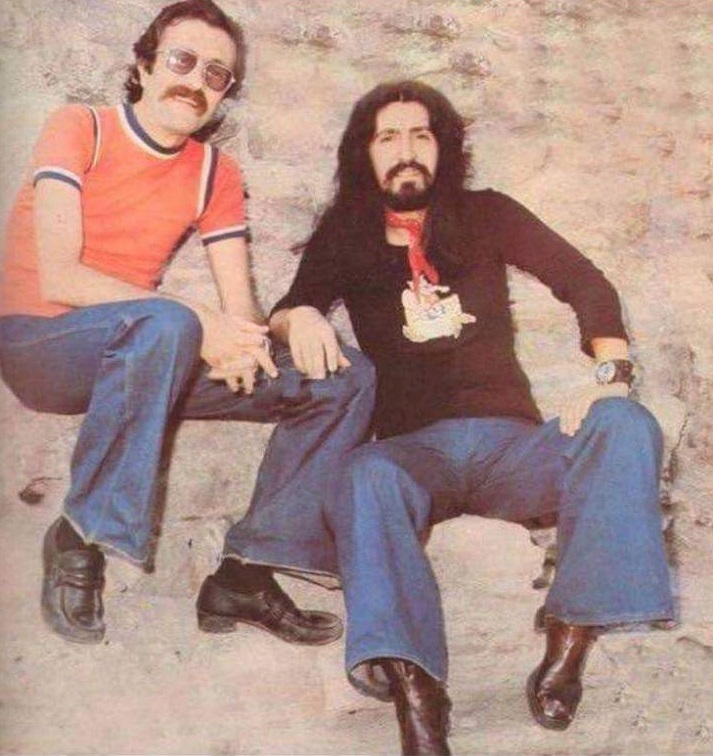
Karaca's personal life was tumultuous. It is difficult to count how many times he was married, Turkish Wikipedia says five, including two times to the same woman. All marriages were short-lived. Although divorces are not an easy thing in Turkey, his temperament was too hot to settle down quickly in this regard. One of his wives, apparently, severely experiencing the separation, after his death spread strange stories about him. He had one son, Emrah, who is also a musician.
Karaca died on February 8, 2004 at the age of 58 from a heart attack. The memory of him is alive in Turkey, his hits are constantly played on the radio, and there are still many fans of his songs.

Источник информации и фото:
Turkish Wikipedia
lyricstranslate site
Anatolian Rock Facebook group